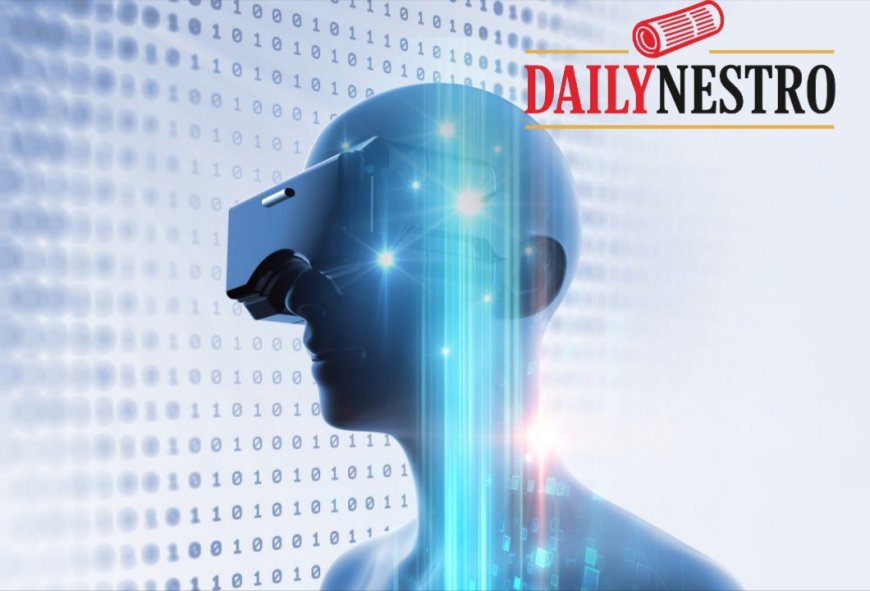6 TOP DISRUPTIVE TECHNOLOGY TRENDS SHAPING THE FUTURE
Discover six disruptive technology trends transforming the future, from AI and blockchain to quantum computing. Learn how these innovations are reshaping industries, creating opportunities, and driving global change.

6 Disruptive Technology Trends Shaping the Future
Technology is evolving at an unprecedented pace, changing the way we live, work, and interact with the world. Disruptive innovations are no longer distant concepts—they are actively reshaping industries, creating new opportunities, and presenting unique challenges. From artificial intelligence to quantum computing, these emerging technologies are defining the future of business, society, and everyday life.
In this article, we’ll explore six top disruptive technology trends that are set to transform the global landscape.
1. Artificial Intelligence (AI) and Machine Learning
Artificial Intelligence (AI) has rapidly moved from being a buzzword to becoming a core part of modern life and business operations. Today, AI powers personalized shopping recommendations, predictive analytics, fraud detection, and even self-driving vehicles.Machine learning, a subset of AI, enables systems to learn and improve over time, allowing businesses to make smarter decisions, automate repetitive tasks, and deliver better customer experiences.
The benefits:
Boosts business efficiency through automation.
Enhances personalization in e-commerce, healthcare, and finance.
Powers advanced technologies like robotics and smart assistants.
2. Blockchain Technology
Blockchain is best known as the technology behind cryptocurrencies like Bitcoin, but its potential goes far beyond digital money. Its decentralized, secure, and transparent nature makes it ideal for industries that require trust and accountability.
How to apply Blockchain technology
Supply chain management : ensuring transparency from production to delivery.
Digital identity verification :preventing fraud and identity theft.
Smart contracts : automating secure agreements without intermediaries.
Advantages: Blockchain is transforming finance, logistics, and data security, setting new standards for trust and transparency.
3. Internet of Things (IoT)
The Internet of Things (IoT) is connecting everyday objects to the internet, creating smarter homes, cities, and industries. From wearable health trackers to connected vehicles and smart appliances, IoT generates real-time data that improves decision-making and efficiency.
Examples of IoT in action:
Smart thermostats that reduce energy costs.
Health trackers that monitor vital signs.
Connected cities with smart traffic and energy systems.
Why it matters: IoT enhances convenience, reduces costs, and supports data-driven innovation.
4. 5G Connectivity
The rollout of 5G networks is unlocking ultra-fast internet speeds and low-latency connections. This next-generation connectivity is essential for powering innovations such as autonomous vehicles, virtual reality, and large-scale IoT ecosystems.
Key importanceof 5G:
Faster downloads and smoother streaming.
Reliable connectivity for smart devices.
Enabling advanced technologies like telemedicine and remote work.
Benefits: 5G is the backbone of digital transformation, enabling industries to innovate at scale.
5. Augmented Reality (AR) and Virtual Reality (VR)
Once seen as gaming tools, AR and VR are now disrupting multiple industries. They are creating immersive, interactive experiences in areas like education, healthcare, retail, and real estate.
Examples of AR/VR in practice:
Medical students practicing surgeries in virtual simulations.
Shoppers trying on clothes virtually before purchase.
Real estate buyers exploring properties remotely.
Advantages: AR and VR are enhancing customer engagement, learning, and training across industries.
6. Quantum Computing
Quantum computing is one of the most exciting yet challenging innovations. Unlike classical computers, quantum computers use quantum bits (qubits), allowing them to process vast amounts of data simultaneously.
Although still in early stages, quantum computing has the potential to:
Solve complex problems in seconds instead of years.
Advance drug discovery and medical research.
Revolutionize financial modeling and climate predictions.
Why it matters: Quantum computing could redefine problem-solving in industries ranging from healthcare to cybersecurity.
In conclusion,From AI to quantum computing, these six disruptive technology trends are shaping a future that is faster, smarter, and more connected than ever before. While each innovation brings opportunities, they also raise challenges around security, ethics, and accessibility.To stay ahead, businesses, governments, and individuals must adapt and embrace change, ensuring these technologies are used responsibly for global progress.
The future is already unfolding,are you ready to be part of it?







